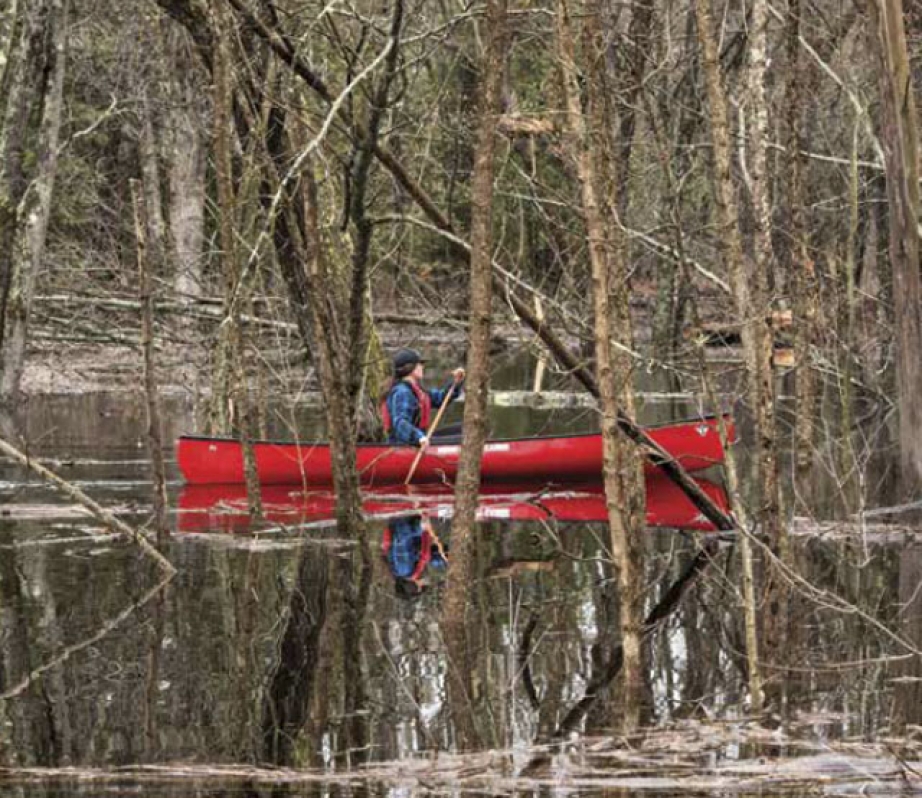Successful individuals unable to consciously assimilate their accomplishments, live in constant fear of being found out as a fraud. This condition is so common that as far back as 1978 clinical psychologists describe these over-achieving employees as suffering from “imposter syndrome.”
Before working as Canoeroots’ assistant editor, I was a grungy freelancer living out of the bed of my pickup truck. Driving from one boat launch to the next, chasing every angling and outdoors story I could find. Just me and my truck White Lighting, a canoe and fishing gear.
Now you must be thinking, if I truly believe in imposter syndrome, I must be a fraud. Hang on there—I hear that enough from myself. While my life on the road appeared glamorous to others, I knew it was just a string of bad food choices and mishaps. Again, stop putting words in my mouth, I’m not saying it was awful. There was just room for improvement—and curtains.
According to Forbes, “Apart from serial narcissists, super low achievers and outright crazies, no one is immune to the self-doubt that feeds imposter syndrome.” What matters according to Forbes, is not whether we occasionally fear failing or looking foolish, it’s whether we give these fears the power to keep us from taking the actions needed to achieve our goals.
Guilty.
This state of mind has driven me to the brink of uselessness. Paralyzed by self-doubt, I find myself unable to think up an original thought for
this column.
Now you probably expect me to transition into a transcendental wilderness adventure in the backcountry that recently changed my outlook on all of this right? Wrong.
But since you brought it up, my latest backcountry trek was a couple weeks ago. A good friend and I decided to cart a canoe into an alpine lake loaded with all of our camping and fishing gear.
Two missed alarms, a one-hour trek up the wrong trail and another threehour trek down the right trail and we weren’t even close. But we knew the brook trout were on the highly elevated horizon, so we pushed on.
After several fallen trees we gave up trying to find paths around and either went through the branchy strainers or lifted the canoe over. A few respectable bruises and scratches later, we at last made it to the crest where gravity would be on our side.
The trees were puny, like that of the tundra, the vista views spectacular and spirits were just as high as we started a small, albeit steep descent to the lakeshore. More trees had fallen. We didn’t know it at the time, but this was a blessing. We started unloading the canoe getting ready for another lift over a spirally dead evergreen’s undergrowth. My friend, a good foot taller than me, got a quick glance ahead at the lake.
“Alyssa,” he said precariously. “We may want to take a walk down first.”
Ice.
The entire lake aside from a thin strip where the sun beats on the farthest shoreline was sprawling white ice.
If anything, this backcountry excursion that finally settled my utter loathing for the all too often excuse used to soften failed attempts, “It’s all about the journey, man.”
Much like that frozen alpine lake however, I know I will not live in this consolidated state of paralysis forever.
